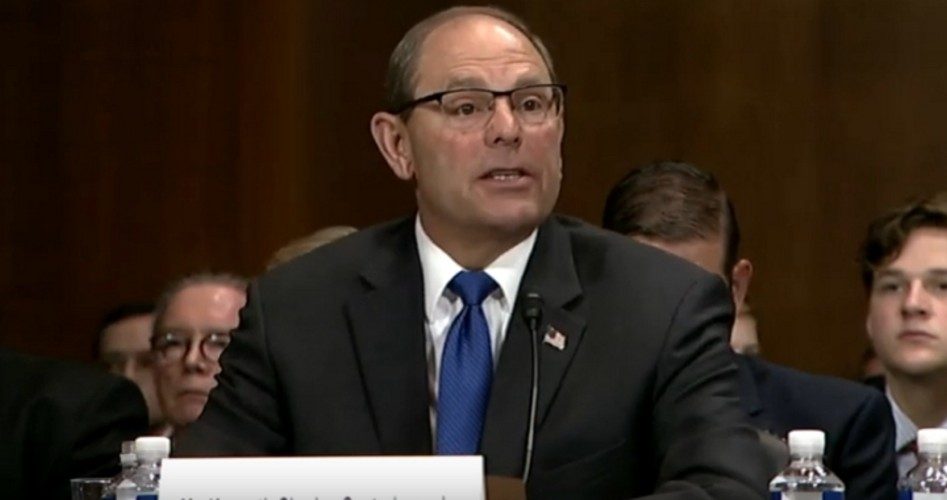
When the White House pulled the nomination of Kenneth Charles “Chuck” Canterbury, Jr. (shown) to head up the Bureau of Alcohol, Tobacco, Firearms, and Explosives (ATF) last week, it didn’t say why. But Canterbury’s confirmation was in jeopardy almost from the beginning.
The White House announced the nomination a year ago, but after hearing what Canterbury had to say about his commitment, or lack of, to the Second Amendment, it died in committee.
During that hearing, GOP Senator John Kennedy of Louisiana expressed his frustration at Canterbury’s lack of candor: “I like straight answers, and you are being evasive. You have been nominated to run the ATF. I think every member of this panel, both my Democratic friends and Republican friends who have feelings about the Second Amendment, are entitled to know both morally and legally what you believe.”
His nomination suffered at the hands of the Gun Owners of America, which said that, while Canterbury was head of the Fraternal Order of Police (FOP), the FOP “backed Congressional measures to expand the unconstitutional and failing NICS [background check] system … and … supported Universal Background Checks and opposed Constitutional Carry.”
The FOP itself didn’t help any, either, when it made plain is opposition to the Constitutional Concealed Carry Reciprocity Act under Canterbury’s leadership.
Canterbury’s nomination stalled, but was returned and revived by the president in February when he renominated him for the position. But his chances were sunk into oblivion when a letter was uncovered, dating back to January 2013, that Canterbury wrote to the Senate Judiciary Committee on behalf of the FOP, not only urging support for expanded background checks, but for “reinvigoration” and additional funding for the ATF “to ensure that it has the tools and resources necessary to [fulfill] its mission.”
Canterbury’s letter also supported the gathering of mental-health records “in the context of firearms acquisition” (whatever that’s supposed to mean), and more federal funding of state and local law-enforcement agencies “to put more State and local law enforcement officers on the street.”
Canterbury buried his nomination when, in the 2013 letter, he gave his reasons for more unconstitutional infringements:
We believe the most logical starting point to address gun violence is the expansion of the background check system. Incomplete or absent background checks create a gaping hole in the wall between firearms and criminals. Loopholes in the background check system give criminals unprecedented opportunity to access firearms. This problem must be remedied quickly….
We encourage you to consider expanding the resources available to ATF to combat firearms trafficking.… As things stand now, ATF has been scraping by with a dwindling number of agents and other resources while ATF’s mission has expanded. Frankly, this is unacceptable.
Things are so bad, complained Canterbury, that “there are jurisdictions out there telling civilians bluntly that they will have to defend themselves.”
In anticipation that he would be confirmed, Canterbury resigned from the FOP after 26 years. It’s hoped that he will now disappear altogether from public view. In the meantime, Regina Lombardo will continue in place as the Bureau’s acting director.
Image: screenshot from YouTube video
An Ivy League graduate and former investment advisor, Bob is a regular contributor to The New American, writing primarily on economics and politics. He can be reached at [email protected].
Related article:



